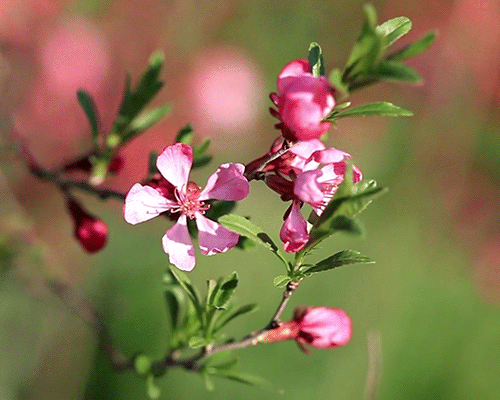-
Comment November 9, 2016
-
How to accept it
24 November 8, 2016We don’t become monks or nuns to eat well, sleep well, and be very comfortable, but to know suffering:
1. how to accept it…
2. how to get rid of it…
3. how not to cause it.Compiled & Edited by Dhamma Garden
Transcribed to the Internet by
Abhayagiri Buddhist MonasterySource: http://www.dharmaweb.org
-
He wishes for nothing
28 November 4, 2016 -
Take nothing for granted
21 November 4, 2016Sitting on the steps, looking across the lake,
Wondering why, life at times, can seem great.
But in that second, it took me to just think,
My life could change, faster than a blink.Is this a reason why we should always cherish?
Not knowing when loved ones may suddenly perish.
Living everyday, like it was our very last,
for our days could be very long or go by very fastSo I’ll cherish and take nothing for granted,
not say things that shouldn’t be chanted.
If this is the last day I have on this earth,
I accept my life, for what it’s been worth.Tomorrow isn’t promised to young or old alike,
Today may be the last day I’m able to hold you tight.
Don’t wait for tomorrow, do it all today,
If tomorrow never comes, you’ll never regret a day.Poem title: Live each day to the fullest
Amy D. Liskey -
-
How to calm a negative energy
26 November 4, 2016There are many ways to calm a negative energy without suppressing or fighting it. You recognize it, you smile to it, and you invite something nicer to come up and replace it; you read some inspiring words, you listen to a piece of beautiful music, you go somewhere in nature, or you do some walking meditation. ~ Thich Nhat Hanh
-
Because that is like that
47 November 4, 2016The Buddha taught that this is like this, because that is like that. You see? Becasue you smile, I am happy. This is like this, therefore that is like that. And that is like that because this is like that. This is called dependent co-arising. Suppose you and I are friends. (In fact, I hope we are friends.) My well-being, my happiness depends very much on you, and your wellbeing, your happiness, depends upon me. I am responsible for you, and you are responsible for me. Anything I do wrong, you will suffer, and anything you do wrong, I have to suffer. Therefore, in order to take care of you, I have to take care of myself. ~Thich Nhat Hanh
-
Behave gently
Comment November 4, 2016 -
Buddha
Comment November 4, 2016Under Mount Ratnagira’s western shade,
Weary and worn with his long search for Truth,
Sorrowing, unsatisfied, disconsolate,
Sat Buddha, knowing not where he should turn
To find the Truth that he had so long sought—
The Truth that maketh steadfast, strong, and pure,
The Truth that bringeth peace and blessed rest.
The Schools had failed him; the philosophies,
Hoary and ancient, had not stilled the cry
Of passion in his heart; and passion’s child,
Sorrow, was with him still; the scriptures, creeds,
Proud pillars of the State, had failed to bear
The weight of his great woe, crumbling away
Under temptation, leaving him the prey
Still of desire and pain and clouded mind.
Mortifications he had tried, and they
Had left him strengthless, wanting the Truth;
And now he seemed as one defeated, borne
Upon the stream of Fate, helpless, alone.But while the Buddha broodued in the shade,
Suddenly on his ear there fell a cry,
A sob of pain, a pitiful strange sigh;
Whereat he rose, and left the shade, and sought
(He scarce knew why, but that there leaped within
His sorrowing heart a mighty unknown love)
Whence came the cry; and presently he saw,
Upon the road, ’mid thirsty clouds of dust,
Under the fierce blaze of the Indian sun,
A shepherd, driving hard a flock of sheep;
And in the rear there lagged a little lamb
With wounded feet, bleating most piteously,
The while the ewe, with anguish deep and sore,
Cried o’er her little one, knowing that she
Was helpless to relieve her.When Buddha saw
The piteous spectacle, compassion slew
His own deep sorrow; and he straightway took
The wounded Iamb, and bore it in his arms,
Saying, ’Vain are the strivings of the soul
After vain knowledge; vain the learned lore
That hath not pity in it; vain is life
That hath not love; and whatsoe’er is false,
And what uncertain, though it seemeth true,
This thing is true, that I should pity thee.
The priests who pray and read, and read and pray,
Die in their sins at last, and do not find
The Love I mourn for, the deep Truth I seek;
And better where it that I ease thy pain
Than pray with them, and seek and never find.
Thee will I love; yea, I will pity thee
Whom none will pity; thee will I relieve;
Tired of the soulless theories of men,
I, Buddha, will stoop to thee, thou dumb, weak thing,
Whom men despise, knowing that this is true,
Whate’er is doubtful, and whate’er unsure,
Pity and Love are right; whatever fades
And perishes, Compassion will not fade,
And Love will never perish.’’ So he took
Into his arms the weary, wounded thing
Which nestled in his bosom, and became
Quiet and peaceful; and the anxious ewe
Walked by his side, looking into his face,
Glad that her lamb had found those blessed arms :
And so she walked, and dumbly worshipped him,
Knowing him Buddha, the compassionate.And Buddha in that hour entered the Way
Which he had vainly sought in schools and creeds;
Entered the Path which no philosophy
Leads unto, and which none shall ever find
But by sweet deeds of Love, forgetting self;
And in his heart there grew a holy Love;
And in his mind a knowledge new and strange;
And his whole being felt a painless peace;
Sorrow and pain were not; and then he knew
hat he had found the holy Truth at last.And from thenceforward Buddha lived the Truth,
And taught its practice; and from far and near
Came men and women who had sought the Truth,
And at his feet they sat and worshipped him,
Learning of love and pity; finding bliss
And peace that cannot fail; and him they called
Deliverer, Redeemer, Blessed Lord.
And even they who understood not, sensed
Faintly this truth which one day they should know:
Better than learning is a loving heart;
And to give comfort to one wounded lamb
Is higher than the wisdom of the schools,
And greater than the world’s philosophy.Source: jamesallenlibrary.com
-
Ever Vivid
9 November 4, 2016
















